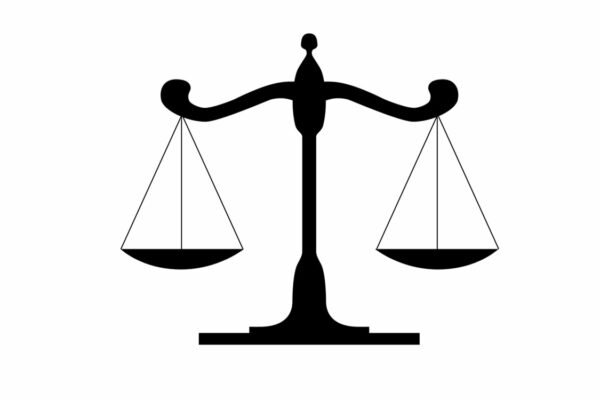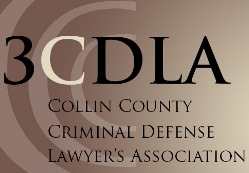1. What is sexting?
 The Act of sending naked or otherwise provocative photos to another via text or
The Act of sending naked or otherwise provocative photos to another via text or
electronic message, including computer images, web camera shots and photos sent by
digital camera. Teens use this mode of communication as a way to flirt with each other.
2. Are there legal ramifications?
Yes, including promotion or possession of child pornography. Forwarding a naked
picture of an individual who is under the age of 18 can quality as possessing or
trafficking child pornography. These charges, often felonies, can lead to criminal
prosecution, confiscation of all electronic equipment, felony convictions and hefty prison
sentences. In addition, possession or distribution of child pornography leads to a life
long duty to register as a sex offender.
3. Can a teen be arrested for this act?
Yes. One third of teens surveyed by the University of Texas Medical Branch in
Galveston said they sent or received provocative photos of another teen. More
disturbing most who were polled stated that they were aware that there were serious
consequences to this conduct but did so anyway.
A similar survey conducted by the National Campaign to Prevent Teen and Unplanned
Pregnancy revealed that 1 in 5 teenagers have admitted to sexting despite harsh
punishment hanging over their heads.
“Studies show that teenage students are increasingly creating, sending and receiving
explicit pictures of themselves on their mobile devices,” said Texas Attorney General
Gregg Abbott.
75% of teenagers own cell phones and one-third send over 3,000 text messages a
month. Texas School Safety Center.
4. How serious is this crime?
In the past, sending or promoting the material would be a felony. However,
understanding the nature of teen behavior and the increasing culture of social media, in
2011 Texas signed into law Senate Bill 407 which prohibits minors from “intentionally
promoting or possessing text messages that contain explicit images of those 18 and
younger,” but punishes offenders with misdemeanor, rather than felony, charges.
Before this law was enacted there was a case in which an 8th grader was jailed after an
accusation of sending suggestive photos on his phone.
5. With the enactment of the new law, is it still illegal to sext?
Yes, this conduct still results in criminal charges. In order to insure the minor (and the
parent) understand the seriousness of the charge, he or she is still required to appear in
court and attend court mandated educational courses on the lifelong consequences of
sexting. The offender’s parents are also required to make a court appearance and
attend the required educational program about the harmful consequences of sexting.
(Texas Education Code, Section 37.218).
6. Can the charges be more serious even if the offender is a teen?
Yes, additional charges may be increased if the offender is found to have used the
explicit images to “harass, annoy, alarm, abuse, torment, embarrass or offend another.”
So if the offender simply possesses an explicit picture of another teen, he or she will
face a misdemeanor (Class C charge for first time violators under the age of 18) with
counseling and classes. However, if the teen forwards that image to embarrass or
harass the person in the photo (or another), the prosecutor may bring more serious
charges, including felony prosecution.
In addition, teens who are accused of a 2nd or 3rd “case” are going to face much more
serious consequences, including felony charges. These types of cyber crimes are very
serious and require an experienced attorney.
7. Are there any legal defenses to these charges?
Yes, if the couple is within 2 years of each other in age and in a romantic relationship,
the Romeo-and-Juliet affirmative defense may protect the individual charged with the
violation. Exemptions can also apply if the message was not “solicited” (requested or
sought) and when received was promptly deleted.
8. Can my teens record be erased or expunged after a sexting accusation?
If your child is acquitted or granted deferred disposition on a Class C Charge, he or she
may be eligible to have the offense erased after he/she reaches the age of 18. If more
serious charges are filed and result in a conviction, the case will remain on his/her
record for life.
The new law contains a provision that allows the teens to apply to the court to have the
sexting offense expunged from their records.
9. What if an adult is accused of dirty talk with a teenager?
The Texas Court of Criminal Appeals struck down the portion of a Texas statute
prohibiting “communicating in a sexually explicit manner” with a minor with the intent to
arouse noting the law was unconstitutional on its face. Ex Parte John Christopher Lo,
No. PD-1560-12 (Oct. 20, 2013).
Statutes regarding “on-line solicitation,” statutes that cover actual invitations to have
sexual contact in person are still regarded as constitutional in Texas and most other
jurisdictions.
What was found to be unconstitutional about Section 33.021(b) of the Texas Penal
Code was that portion of the law which covered:
“Communicating online in a sexually explicit manner with a minor if the person
communicating has the intent to arouse and gratify anyone’s sexual desire.”
“Sexually explicit” is defined as “communication, language or material that relates to or
describes sexual conduct.”
As other separate statutes dealt with obscene communications, communications
harmful to minors and child pornography, the only material that was prohibited in the
now defunct provision was protected speech. Because the statute covered content that
was not necessarily obscene, it could have included “titillating talk,” and other innocuous
content such as “50 Shades of Grey,” Janet Jackson’s wardrobe malfunctions and
Miley Cyrus ‘twerking.’
This ruling permits sexualized communications between and adult and minor that are
not obscene or solicitative, even if there is some intent to arouse on the part of the
adult-sender. The transmission, while possibly harmful, cannot stand up to First
Amendment scrutiny.
10. What is the exact language of the law?
Tex. Penal Code Sec. 43.261. Electronic
Transmission of Certain Visual Material Depicting
Minor.
(a) In this section:
(1) “Dating relationship” has the meaning assigned by Section 71.0021, Family
Code.
(2) “Minor” means a person younger than 18 years of age.
(3) “Produce” with respect to visual material includes any conduct that
directly contributes to the creation or manufacture of the material.
(4) “Promote” has the meaning assigned by Section 43.25.
(5) “Sexual conduct” has the meaning assigned by Section 43.25.
(6) “Visual material” has the meaning assigned by Section 43.26.
(b) A person who is a minor commits an offense if the person intentionally or
knowingly:
(1) by electronic means promotes to another minor visual material depicting a
minor, including the actor, engaging in sexual conduct, if the actor produced the
visual material or knows that another minor produced the visual material; or
(2) possesses in an electronic format visual material depicting another minor
engaging in sexual conduct, if the actor produced the visual material or knows
that another minor produced the visual material.
(c) An offense under Subsection (b)(1) is a Class C misdemeanor, except that the
offense is:
(1) a Class B misdemeanor if it is shown on the trial of the offense that the
actor:
(A) promoted the visual material with intent to harass, annoy, alarm,
abuse, torment, embarrass, or offend another; or
(B) except as provided by Subdivision (2)(A), has previously been convicted
one time of any offense under this section; or
(2) a Class A misdemeanor if it is shown on the trial of the offense that the
actor has previously been:
(A) convicted one or more times of an offense punishable under
Subdivision (1)(A); or
(B) convicted two or more times of any offense under this section.
(d) An offense under Subsection (b)(2) is a Class C misdemeanor, except that the
offense is:
(1) a Class B misdemeanor if it is shown on the trial of the offense that the
actor has previously been convicted one time of any offense under this section;
or
(2)AAa Class A misdemeanor if it is shown on the trial of the offense that the
actor has previously been convicted two or more times of any offense under this
section.
(e) It is an affirmative defense to prosecution under this section that the visual
material:
(1) depicted only the actor or another minor:
(A) who is not more than two years older or younger than the actor and
with whom the actor had a dating relationship at the time of the offense; or
[button style=”” url=”/contact-my-office/” size=”5″ block=”false” target=”_self”] Sign Up for a Free Consultation [/button]













